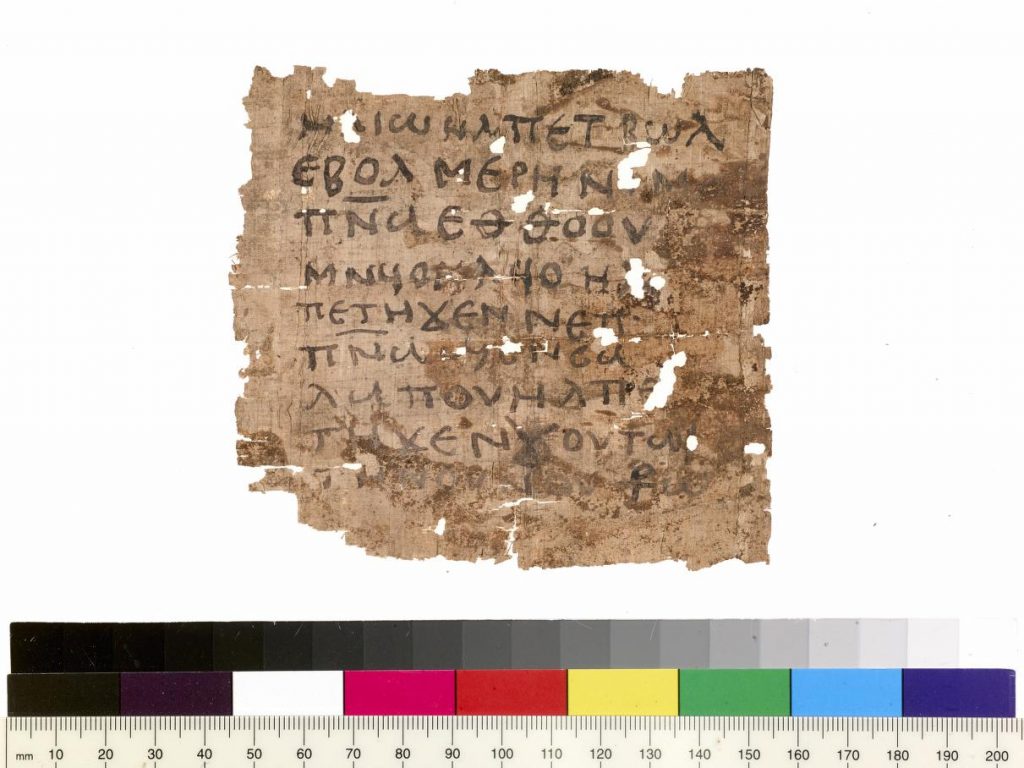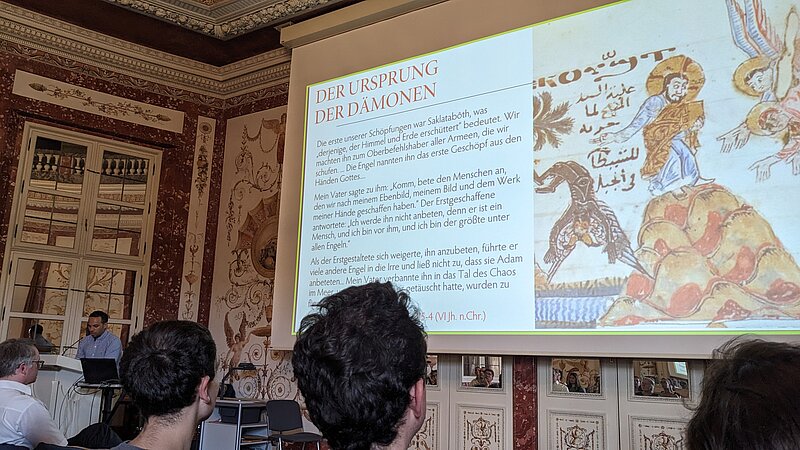
Looking forward…
The Coptic Magical Papyri project ended last year, but we are happy to announce that it will continue in a new form. The Coptic Magical Formularies project has been funded by the German Research Foundation (DFG) for three years, from 2024 to 2027, with the research to be carried out by Korshi Dosoo, former leader of the Coptic Magical Texts project, and Markéta Preininger, formerly doctoral and then postdoctoral researcher on the same project.
This project will focus on the production of a second volume of the Papyri Copticae Magicae, the series whose first volume appeared last year. This new volume will contain dozens more magical texts written in Coptic, and we have some very exciting, never-before published material lined up – magical rituals using the Psalms, three spells to give the user a beautiful singing voice, and a strange invocation of Satan “the old serpent”. These will be accompanied by some carefully selected manuscripts which have been published in the past, but into which our work has given us new insights. As with the first volume, we hope that our work on these papyri not only as texts, but as physical manuscripts, will help us to better understand where they came from – physically and temporally – and who used them, and how.
Once again, this editorial work will be carried out alongside synthetic studies in order to better understand Coptic magical texts, and the work of digital humanities to share our research with other researchers and interested non-specialists. We will be carrying out two focused studies – on the language of the papyri, and of the ritual processes they describe, which will be published over the course of the next three years. We will also continue the work of maintaining the Kyprianos database, and, we hope, get back to blogging regularly again, so please let us know if there are any subjects about which you are keen to learn!

Looking Back…
While our new Coptic Magical Formularies project only officially began in May this year, the two investigators have been working steadily on the topic. Markéta Preininger was carrying out research as part of her project, “Invisible Influences on Health: Health and The ‘Spirit’ World in Late Antique Egypt”, funded by a SCIENTIA scholarship. This involved editing a number of Coptic magical manuscripts from the University of Michigan collection, some of which will be included in the next volume of the Papyri Copticae Magicae. One of them turned out not to be magical after all, but rather the first attestation in Coptic of the miraculous medicine known as the theriac; this will soon be published in the Journal of Coptic Studies.
Meanwhile, Korshi Dosoo was a fellow in the MagEIA Centre of Advanced Studies which launched in Würzburg. MagEIA is a multi-year project focusing on the study of the magical textual traditions of Western Asia and the Eastern Mediterranean in Antiquity, led by Professors Daniel Kölligan, Daniel Schwemer, and Martin Stadler, and we will be continuing to work with them over the coming years.
As usual, we have also been busy presenting our work internationally, and have presented at seventeen conferences and seminars since our last report. One of these, “Causers of Strife and Child Murderers – Demons and Other Malign Beings in the Coptic Magical Papyri” is summarised on the MagEIA blog page – which is itself worth following for our followers interested in the study of magic. Another talk, Christian Egypt and its “Pagan” Past is available to watch on the YouTube page for the Chicago Institute for the Study of Ancient Cultures, where it was presented.
We also submitted a total of fourteen articles, editions, and reviews, of which one was published in the last year:
- Korshi Dosoo, ‘(Post-)Colonialism and Ancient Magic’, in the Handbook of Classics, Colonialism, and Postcolonial Theory, edited by Katherine Blouin and Ben Akrigg, London: Routledge, 2024, 280–300.
This article looks at the ways in which both the study of mediterranean ‘magical’ objects and the anthropological concept of magic emerged in the context of European imperialism. It begins by investigating the reception of the magical papyri and the ways in they challenged Western approaches to the Classical and Egyptian past. The second part discusses the development of anthropological concepts of magic in the nineteenth century in the work of Edward Burnett Tylor and James Frazer, how their approaches interacted with studies of ancient magic, but were ultimately rejected by anthropologists and classicists in the twentieth century. The third part concludes by exploring ways in which postcolonial theory has, or could be, used to inform the study of ancient ‘magic’, with renewed sensitivity to material context, power relations, and inherited theoretical assumptions.
As always, thanks to all of our friends who have continued to follow us through this change! We hope to share more with you very soon.





No comments:
Post a Comment